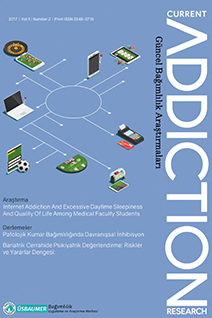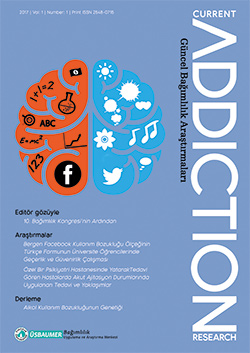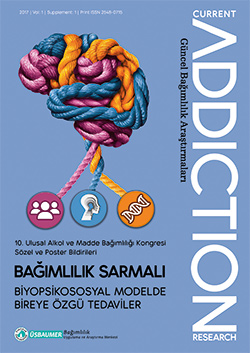Years
2017
Categories
Authors
ARTICLES
Review Article
Nesrin Dilbaz
2017, 1(2), s:53-55
The prevalence of obesity has been growing on a global scale and almost all health caregivers has been involved in its treatment and management. Bariatric surgery has emerged as an effective approach for weight reduction and associated with improved general health. Preoperative psychiatric assessment for bariatric candidates is necessary since the importance is well established. Also empirical data suggest that a high prevalence of psychiatric comorbidities among bariatric surgery candidates. Research indicates a decrease in certain psychiatric symptoms after weight loss with bariatric surgery. However, the risk of unsuccessful weight loss and suicide in some bariatric surgery patients make monitoring after surgery as important as the careful assessment and management before surgery. Neverthless, this area needs a standard protocol to guide the mental health professionals that deal with bariatric patients. In this review, we focus on the management of bariatric surgery patients both preoperatively psychiatric assessment and postoperatively psychiatric follow up.
Review Article
PATOLOJİK KUMAR BAĞIMLILIĞINDA DAVRANIŞSAL İNHİBİSYON
Gürler Güz,Hatice Özyıldız Güz
2017, 1(2), s:65-71
The gambling disorder was removed from impulse control disorders brought to the head of substance and related disorders with DSM-5. It is one of the reasons for this change to be seen in gambling disorders of malpractice processes in the reward and punishment systems seen in substance use disorders. In the development and maintenance of pathological gambling addiction, it has been shown that inhibition of behavior has an important role rather than impulsivity. Delay in suppression is one of the executive functions and is mainly due to prefrontal dysfunction. For this reason, investigations also examined brain functions in gamblers.



 2. Sayı
2. Sayı
 1. Sayı
1. Sayı
 Ek Sayı
Ek Sayı







